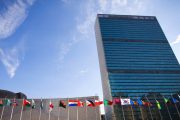
Information obtained as a result of a Freedom of Information Act request reveals that the U.S. Army is actively investigating a group of journalists and activists working on behalf of PFC Bradley Manning.
While the request for documents was denied, the text of the denial issued by the Army is newsworthy of itself. According to the rejection of the petition, the Army writes that “an active investigation is in progress with an undetermined completion date.”
In a letter from the U.S. Army Criminal Investigation Command (USACIDC) dated May 18, 2012, the director of the Crime Records Center of the Army responded to the FOIA request to be given access to any documents held by the Army regarding the Bradley Manning Support Network.
Citing several exemptions to the Freedom of Information Act, Susan Cugler informed the petitioners that they may re-submit their FOIA request after the completion of the investigation. Of course, given Cugler’s admission that the investigation has an “undetermined completion date,” there is little chance that the Army will ever reveal why or how intensely it is investigating the Manning advocacy group.
In what is described as “the biggest leak of classified information in U.S. history,” Manning is accused of passing over 700,000 documents and video clips to WikiLeaks, the widely known website devoted to exposing government corruption throughout the world.
If convicted of the charge of giving aid to the enemy, Manning could face life imprisonment. The maximum penalty for the other charges he faces is 150 years combined.
Manning’s defense team avers that their client was “troubled” and that he was not competent to have been allowed access to classified information.
Private Manning, 24, from Crescent, Oklahoma, has been detained since he was arrested on May 29, 2010 while on deployment with the 10th Mountain Division in Iraq. While on duty near Baghdad, Manning had access to the Secret Internet Protocol Router Network (SIPRNet) and the Joint Worldwide Intelligence Communications System. SIPRNET is the network used by the U.S. government to transmit classified information.
Manning’s arrest came as the result of information provided to the FBI by a computer hacker named Adrian Lamo. Lamo told agents that during an online chat in May 2010, Manning claimed to have downloaded classified information from SIPRNet and sent it to WikiLeaks.
According to published reports, the material Manning is accused of unlawfully appropriating includes a large cache of U.S. diplomatic cables (approximately 250,000), as well as videos of an American airstrike on Baghdad conducted in July 2007 and a similar attack in May 2009 on a site near Granai, Afghanistan (an event sometimes known as the Granai Massacre).
In his defense, Manning’s lawyers argued that Manning was not the only one in his unit with access to the computers from which the information in controversy was obtained. As reported by the Associated Press:
They say he was in emotional turmoil, partly because he was a gay soldier while U.S. armed forces still barred gays from serving openly. The defense also claims Manning’s apparent disregard for security rules during stateside training and his increasingly violent outbursts after deployment were red flags that should have prevented him from having access to classified material.
The prosecutors also disclosed printed copies of excerpts of Internet chats found on Manning’s personal computer. According to the Army, these transcripts prove Manning’s collaboration with the founder of WikiLeaks, Julian Assange.
Manning has been imprisoned for more than 800 days without a trial.
As reported recently by The New American, the judge in the court martial granted Manning’s legal team motion for full discovery of exculpatory evidence. As Thomas Eddlem reported:
Manning’s attorney Lt. Col. David E. Coombs had also filed a motion where he “requests the Court to suspend these proceedings and order the Government to state with specificity the steps it has taken to comply with its discovery obligations,” but the presiding military judge Colonel Denise Lind denied that defense motion to suspend plans for a trial until full discovery of evidence was provided by the prosecution.
In earlier pre-trial proceedings, the accused’s legal team scored a rare victory.
At the ongoing series of hearings being held at Ft. Meade, Maryland, Judge Lind recently ordered the government to give the defense a cache of confidential documents related to the WikiLeaks website that it was previously withholding.
Per the judge’s order, lawyers for the Obama administration must now turn over to David Coombs, Manning’s chief civilian defense counsel, some of the damage assessment reports it compiled of estimates of the impact of the WikiLeaks publication on the international interests of the United States.
The defense hopes that information revealed in these files will bolster its case by demonstrating that the effect of the leaks was minimal and did not rise to the level of giving aid to the enemy.
The State Department conducted much of the investigation into the impact of the WikiLeaks publication of information allegedly provided by PFC Manning. Its report on this inquiry was among the documents received by Coombs and his colleagues as a result of the judge’s ruling.
Although the information has been released to Manning’s lawyers, it will not be released to the public. Regardless of the secrecy, it is believed that the file includes reports submitted by American embassies around the world regarding any negative impact on their ability to carry out their missions in the wake of WikiLeaks’ release of thousands of cables exchanged among the diplomatic corps.
Though the information has not been made public, it is likely to include the assessments of embassies across the globe of the effects on their work of the publication of hundreds of thousands of diplomatic cables.
In November 2010, U.S. Attorney General Eric Holder condemned WikiLeaks for its publication of confidential information, saying that it threatens U.S. national security, specifically by risking the safety of those serving the country and straining important diplomatic relationships.
WikiLeaks has alleged the information must be revealed to the public as evidence of potential crimes against humanity. In July 2010, WikiLeaks founder Julian Assange said that the Afghan War Diaries, a compilation of 91,000 documents leaked to the organization on the U.S. war effort in Afghanistan, may provide evidence of war crimes committed by U.S. forces.
Apart from the Army’s apparent admission that it is investigating the Bradley Manning Support Network, there is word from that group itself that the military is intimidating journalists covering the Manning court martial.
This report is taken from the Bradley Manning Support Network website:
Journalist Alexa O’Brien was threatened with arrest and loss of credentials for investigating at Fort Meade. O’Brien, who has covered Bradley Manning’s trial in detail from its inception, was attempting to learn why the press room at Ft. Meade was closed during Bradley’s most recent motion hearing. When she started asking questions, Ft. Meade personnel told her she was being “disruptive,” that she’d broken rules, and that she could be arrested or have her credentials revoked.
O’Brien recorded audio of her discussions and included the recordings in her report of the incident.
The ongoing investigation of those advocating for openness in the Manning case and the attempt to frighten journalists prompts one to wonder what the government has to hide regarding its prosecution of Bradley Manning.
Photo: Alexa O’Brien from a YouTube video



